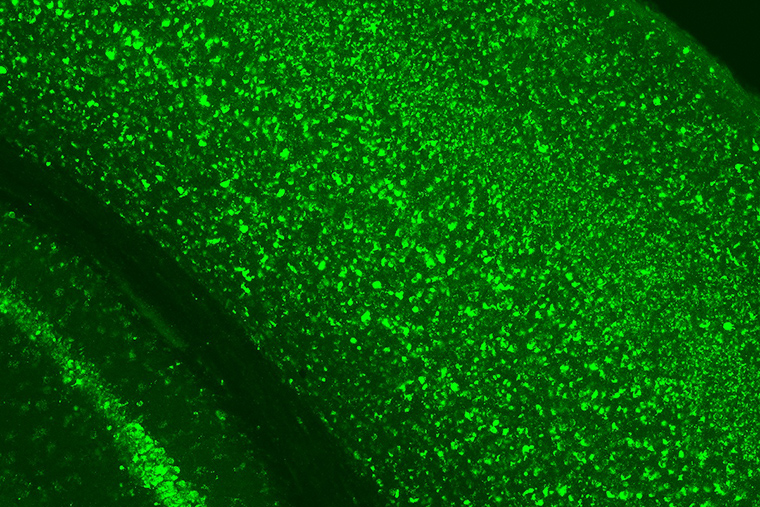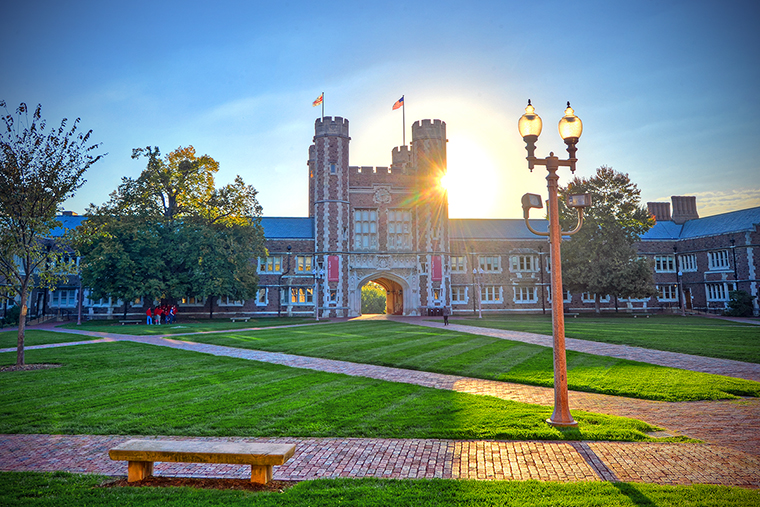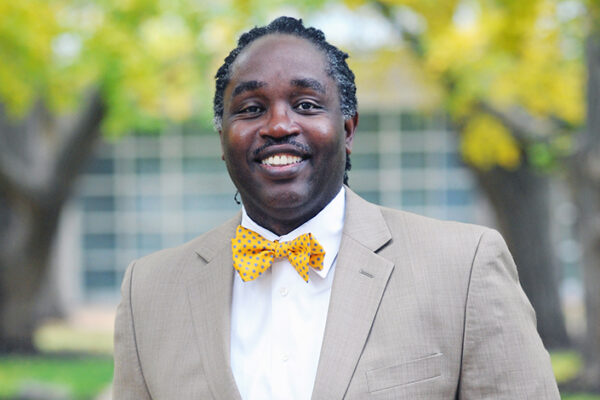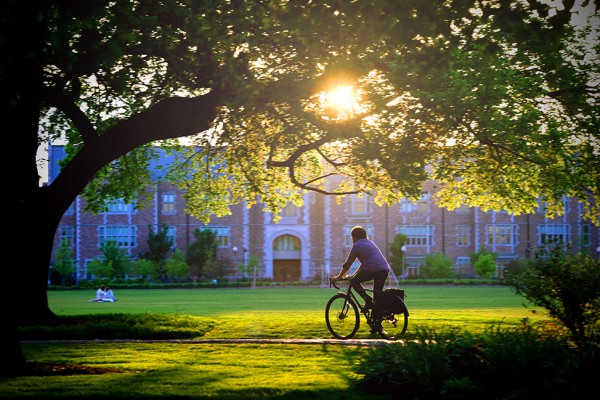
Friday, Oct. 14, 2022
|
Top stories
|
| Research from the lab of Fangqiong Ling at the McKelvey School of Engineering finds SARS-CoV-2 material in wastewater reflects illnesses in communities. It also helps establish guidance for future studies. |
|
|
| Research in animals led by Washington University and the Roslin Institute in Scotland shows that supplying a vital missing enzyme helps to improve CLN1 disease, a rare but fatal brain disorder. |
|
|
| The university has begun using a new admissions system, Slate, for most of its graduate-level programs. The move is part of Student Sunrise, a multiyear initiative to consolidate and update WashU’s various student information systems. |
|
|
|
Read more stories on The Source →
|
Events
|
|
|
10 a.m. Saturday, Oct. 15 |
|
|
|
|
|
|
View more events →
|
|
|
WashU in the News
|
|
ASSOCIATED PRESS
|
|
THE NEW YORK TIMES
|
|
WALL STREET JOURNAL
|
|
ASSOCIATED PRESS
|
|
See more WashU in the News →
|
Campus and community news
|
| Research Wire
The Fourth Annual Missouri Egyptological Symposium (#MOEgypt4) will take place Oct. 14-15 on the Danforth Campus. Nicola Aravecchia, assistant professor of classics and of art history and archaeology in Arts & Sciences, is one of the organizers of the event. |
|
|
| Notables
HomeGrown STL, a Brown School program directed by Sean Joe, has won an inaugural Social Justice Innovation Award from financial firm Morgan Stanley and the nonprofit Centri Tech Foundation. HomeGrown STL focuses on improving community-level capacity to reduce inequality in Black adolescents’ healthy transition to adulthood. |
|
|
| Announcements As part of Active Transportation Month in October, the Sustainability, Parking & Transportation, and Operations & Facilities Management offices are hosting two commuter fairs and a commuter challenge starting Monday, Oct. 17.
|
|
|
Perspectives
|
|
Derek Hoeferlin, chair of landscape architecture and urban design at the Sam Fox School, and visiting designer Kotchakorn Voraakhom speak with the “Engineering With Nature” podcast.
Apple Podcasts Preview
|
|
Read more Perspectives →
|
Who Knew WashU?
Question: Philip Dybvig, of Olin Business School, was one of three people awarded the Nobel Prize in economics this week in recognition of a research paper that helped explain why banks are subject to runs. Approximately how many times has this paper been cited?
Answer: D) The paper, which demonstrated that all bank runs share the same DNA, despite different circumstances and triggers for panics, has been cited more than 11,000 times since its publication in 1983.
Congrats to this week’s winner, Bev Dilthey, a staff member at the School of Medicine, who will receive an “I Knew WashU” luggage tag!
|
|
| |








